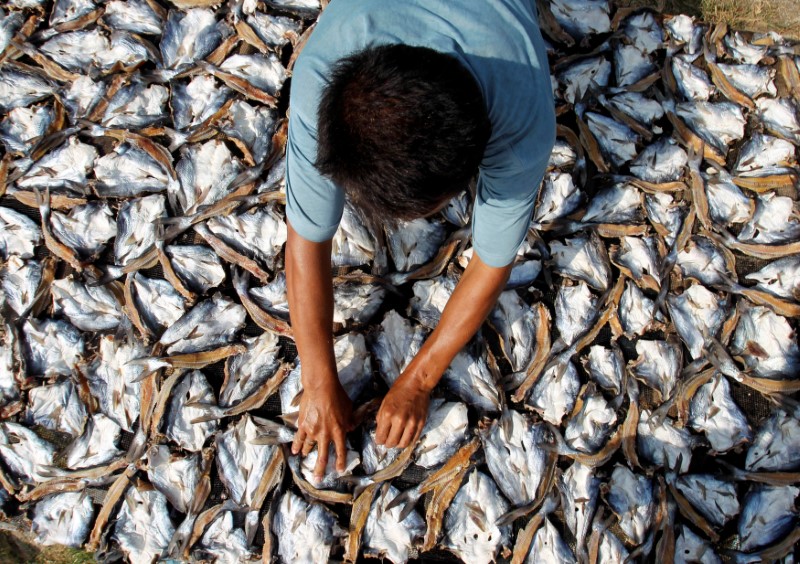By Neil Jerome Morales
MANILA (Reuters) - The Philippine economy grew at its slowest pace in more than a year in the first quarter on weaker government spending, but strong exports and domestic consumption suggest the Southeast Asian country remains poised to raise rates this year.
It was the slowest economic expansion since firebrand President Rodrigo Duterte took office nearly a year ago, sending Manila's equities (PSI) down more than 1 percent and the peso <PHP=> to a one-week low.
Gross domestic product grew 6.4 percent in January-March from a year earlier, below forecasts for 6.8 percent growth and the slowest since the last quarter of 2015.
The Philippine Statistics Authority revised growth in October-December 2015 to 6.3 percent from 6.7 percent.
But the Philippines remains one of the fastest growing economies in Asia with robust consumption, which fueled last year's growth, continuing to bolster economic activity as exports pick up.
"Moving forward, the domestic economy is poised to maintain its growth momentum with the recovery of external trade and the private sector's steadfast optimism," Economic Planning Secretary Ernesto Pernia said, adding growth was broadly in line with the 6.5-7.5 pct target for this year.
Pernia said the slowdown could be explained by the absence of election spending, which boosted growth a year earlier.
RATE HIKE SEEN
Strong exports and consumer spending, however, should put the central bank on course to raise interest rates this year, economists said.
"With robust growth and rising inflation, the space for the central bank to maintain its policy stance is closing," said ANZ economist Eugenia Victorino who expects a 50-basis-point hike in rates this year.
Exports grew 20.3 percent in the first quarter from a year earlier and domestic consumption rose 5.7 percent. But government consumption growth eased to 0.2 percent from 4.5 percent in the previous quarter and 11.8 percent a year ago in the absence of election spending.
"Given the government's aggressive fiscal plan this year, it remains to be seen if spending may accelerate going forward, which will definitely be a big boost to GDP growth momentum," said Gundy Cahyadi, economist at DBS Bank. Cahyadi expects full-year growth to come in at 6.4 percent.
The economy grew a seasonally adjusted 1.1 percent from the previous three months, also less than the 1.5 percent forecast in a Reuters poll and the slowest in eight quarters.
To sustain the economy's growth momentum and ensure its effects are more broadly felt, Duterte has promised to spend up to $180 billion over six years to build and modernize railways, airports, seaports and roads.

The stimulus would help offset the impact of protectionist U.S. policies on remittances from overseas Filipinos and on American investment in business process outsourcing to the Philippines, a vital sector for the economy.